Top: Abu Keita, a broker in Compound Number Three, Grand Bassa County, buys a kilogram of pangolin scales for at least US$2 and sells them to traffickers for up to US$20. The DayLight/James Harding Giahyue
By James Harding Giahyue
BOPOLU, Gbarpolu County – Liberia is one of the countries of origin for the trafficking of pangolin scales worldwide amid a global ban on illicit wildlife trade (IWT).
Commonly called “ants bears” in Liberia, pangolins face extinction, with an estimated 300 individuals illegally extracted from rainforests every day worldwide, according to the International Union for the Conservation of Nature (IUCN).
In an investigation covering nine counties, The DayLight has uncovered members of the syndicate that smuggles pangolin scales out of the country. It reveals everything about the crime: sources, trafficking routes, pricing and the organization of the cabal.
There are four layers of the syndicate, according to its members we interviewed and other sources.
The first is the collectors: hunters, farmers and villagers who are capable of picking up a live pangolin, killing and dipping it into boiled water to remove the skin. Pangolins are weird animals. Their only defense against predators is to roll up like a ball, their scales pointed outward, making them vulnerable to people. Scientists call them scaly anteaters because they eat ants, putting out their 10-inch, sticky tongue to lure insets. That is how it got the name “ants bear.”
“Ants bears don’t have a special road to travel on,” said John Sumo, a hunter in Sappimah, a town on the outskirts of Bopolu, the capital of Gbarpolu County. He had a live pangolin and scales of a dead one he was ready to trade. “They go into my traps sometimes. Sometimes, you see it walking on a stick. Sometimes you see it walking on the ground. Sometimes, I catch two or three in a week.”
The second comprises middlepersons, mainly villagers who store huge quantities of scales in their homes. Motorcyclists, taxi drivers, bushmeat sellers and motorists also form part of this tier.
The third is brokers, who in most instances do not live the area they work. Other brokers are shopkeepers, restauranteurs and people whose main job is to buy and sell pangolin scales
Traffickers—mostly Chinese, Guineans (Mandingoes), and Nigerians—conclude the fourth layer of the syndicate. But collectors, middlepersons and brokers change places regularly as possible, and it is also commonplace to find traffickers themselves, collectors.
Traffickers set the prices, while brokers adopt them, The DayLight found. Those prices are used for trading between brokers and traffickers for the most part, with the majority of the people we interviewed putting it between US$2 and US$20 for a kilogram of scales or the equivalent in Liberian dollars.
The majority of the trafficked pangolin scales originate from Gbarpolu, Nimba, Lofa, River Cess, Grand Bassa, Grand Cape Mount and Bomi. Montserrado, Nimba and Lofa host warehouses where the scales are stored before they are predominantly smuggled across Liberia’s borders with Guinea, according to members of the syndicate The DayLight interviewed.
Brokers, and in some cases traffickers, move the scales across various checkpoints countrywide, often unchecked.
‘Like gold’
A leading broker in the region between Grand Cape Mount and Gbarpolu is a woman named Sylvia Dehmai. The small-figure mother of three turned her back to a career in masonry back in 2018 and has established herself as one of the most notorious pangolin scales pushers. She is widely known as “Original,” first a reference to her breaking barriers in masonry and now her label on the black market. “I saw people doing the business and I was interested in it and that’s how I started it,” Dehmai told The DayLight in an interview in Virginia after we tried to locate her for months. “I saw it was profitable at that time and I joined it.”
Dehmai’s scouring for pangolin scales takes her from her Gold Camp home in the Lofa Bride area to communities adjacent to the Gola National Park in Kongba District, Gbarpolu County on a motorcycle or on foot. She buys from local hunters and farmers, she said. Sometimes, she contracts villagers for a commission on scales they gather.
Once Dehmai gathers the volume of pangolin she can pay for or the quantity available, she heads back to Gold Camp on a motorcycle. Depending on the size of the consignment, Dehmai often hires a driver, she said. She then takes the scales to Guinean or Mandingo traffickers in the Monrovia suburb of Somalia Drive, who pay her between US$10 and US$15 for a kilogram. “I will not lie, I am very interested in the business,” she said with a smile. “It is like a gold business. No credit in it. Cash, cash.” Attempts to track down the traffickers Dehmai mentioned and others our sources mentioned were unsuccessful.
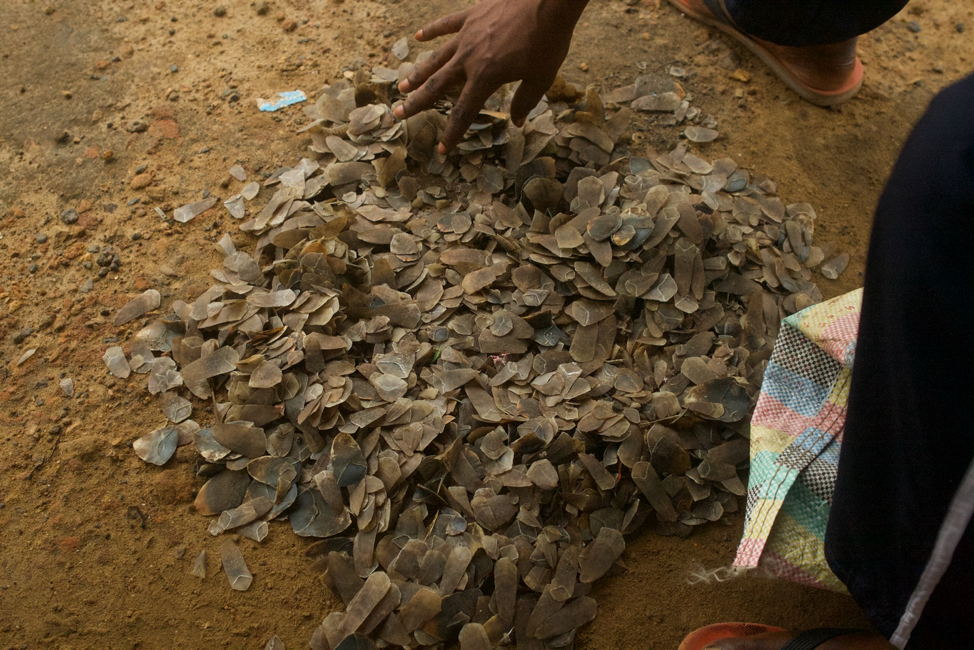
Dehmai is aware that her trade is illegal. Liberia’s wildlife law prohibits hunting and trading pangolins for their meat or scales, with violators facing a fine between US$250 and US$5,000 or a four to a six-month prison term. But she still manages to pass through checkpoints, claiming she bribes rangers of the Forestry Development Authority (FDA) and other security personnel. On one occasion, she recalled she was allowed to go with pangolin scales after connecting a wounded police officer to a native healer in her community.
“It is hard but yet and still I want to do the business,” she said. They catch me oh, they don’t catch me oh, I will still survive.”
Evidence backs Dehmai’s story. Liberia is the fourth-largest hub for pangolin sourcing in Africa after Nigeria, Cameroon and Guinea in that order, according to a 2017 report by the International Union for the Conservation of Nature (IUCN), which published data from 2010 to 2015. With four of the eight pangolin species globally and home to over 40 percent of the Upper Guinea forest, West Africa’s largest remaining rainforest, the country is a target for global traffickers. A recent large seizure of pangolins in Cote d’Ivoire involves Liberia as a source country, said a 2020 report by the United Nations Office on Drug and Crimes (UNODC). As widespread as the crime in Liberia, not a single person has been prosecuted in nearly five years of the ban on pangolin poaching and no seizures have been recorded. The IUCN urges countries involved in the sourcing and trafficking of pangolins to make awareness against that international crime and, among other things, enforce their laws to eradicate it.
Dehmai is aware pangolins face extinction but believes that their scales can heal certain sicknesses. As a child in Ganta, Nimba County, she recalled her grandmother treating people with herbs made of pangolin scales. “I believe it is for medicine because when my grandmother was living, she used to use the black ants bears’ scale to make medicine for [people with hepatitis],” she said.
That same belief drives the demand for wildlife in Asia and Africa. Pangolin scales may have been used in China for thousands of years to treat a variety of diseases. In Nigeria, they are used to cure physical and psychological conditions. The belief has not been medically proven, though. Pangolin scales contain keratin, the same material in humans’ fingernails, hairs and animals’ horns, which are not used to cure any disease. China removed pangolin scales from its list of traditional medicine in 2020 in a bid to help protect the animal’s rapidly declining population. All four Asian species of pangolin are critically endangered, according to the IUCN.
While Dehmai’s operations are restricted to the Kongba District towards the Sierra Leone border, Gbarpolu is the base of another broker named Richard Nelson. The owner of a cooked-bowl shop or a rough-and-ready restaurant and a used-clothes dealer in Bopolu, the capital, Nelson is the only member of the syndicate The DayLight interviewed who buys both pangolin meat and scales. “It is a good business because I am benefiting from the meat and the scales,” Nelson told The DayLight.
Nelson’s ideal location makes him an important figure in pangolin-scales sourcing in Gbarpolu. The cooked bowl shop acts as a storehouse and the used clothes are an additional veil of his illicit dealings. His customers come from everywhere—from Gbarquoita and Sappimah nearby to Belle Fasama and Belle Kpalamu far away. They are not just villagers and other brokers but also anyone—“nurses and midwives who come to attend workshops here in Bopolu.” He said he buys a kilogram of scales for at least US$2.
Upon purchase, Nelson takes the scales to Monrovia via Suehn Mecca and sells them up to US$36 per kilogram. He makes a stop at the Duala market, where he trades with a bushmeat trader commonly called Ma Bendu. Efforts to track her down did not materialize.
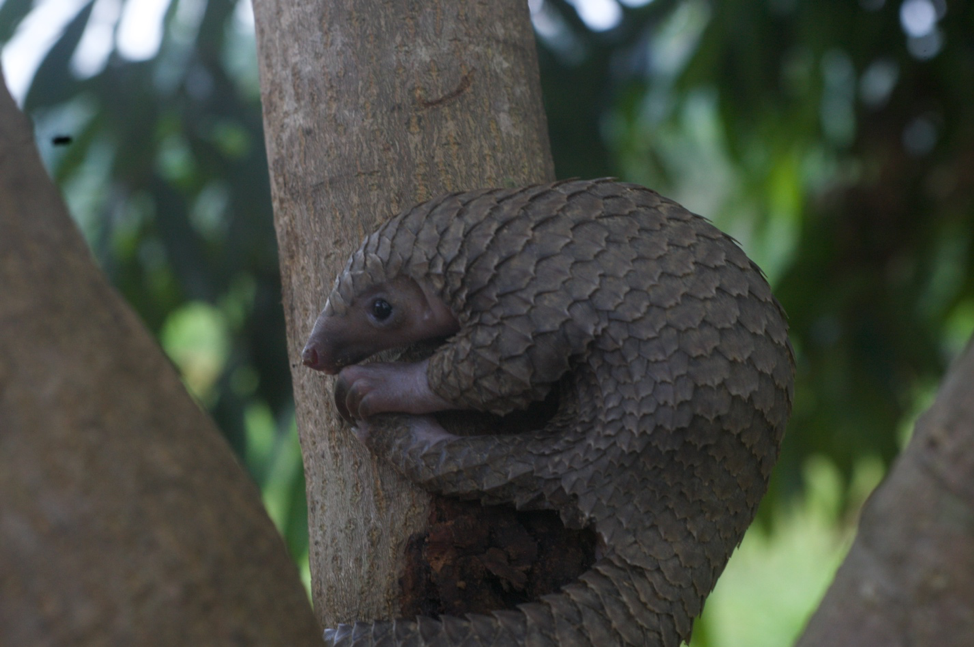
But Nelson’s main partners are Abdullah Kamara and another he only identified as Ansu, two Mandingo men or Guineans at the Red Light market. He said the men told him they smuggle the scales across the Guinean border from the Quardu-Gboni District in Lofa County. Guinea is a source country for large-quantity shipments of pangolin body parts, according to the 2017 report by the IUCN. It features permanently on the route from Thailand to the United States, where pangolin scales are processed into fine leather to produce designer shoes, belts and bags.
Apart from Nelson, The DayLight recorded other brokers of the criminal network in Gbarpolu but was not successful in meeting them. A man, aliased, Sidiki Fula operates in Belle Kpalamu and combs towns and villages towards Belle Yalla. Another broker nicknamed Marie Zebleh frequents the gold-mining community of Henry Town. Momo Freeman treads the same path as Marie Zebleh. And Moses Korboi bases in Zopo Hill.
‘The man with the ants bear scales’
The most prolific of all the members of the syndicate our investigation revealed is one broker townspeople called Gbalakala, for “the man with the ants bear scales” in Kpelle language. A resident of Doe Community outside Monrovia, he runs his own network of dozens of collectors, middlepersons and other brokers, including Nelson. Most of the members of the syndicate in Gbarpolu we tracked down said they had traded with him at least once. “As for me, only Gbalakala I can sell ants bear scales to,” one hunter in Gbarquoita, who did not want to be named fearing arrest, told me in 2019.
Born Mator Jiaway, the 36-year-old father of four started dealing in pangolin scales in 2015. He had graduated from the Seventh-day Adventist High School at ELWA Junction in 2010 and had had spells as a motorcycle taxi driver and a petroleum street peddler. He said he saw pangolin scales as a way out of poverty in one of the poorest countries in the world. “The country is hard, so we have to find a way to get our daily bread,” Jiaway said in a 2019 interview with me at his home. “If I don’t do this, my family will go to bed hungry,” he added, pointing to his wife and two of his children who were sitting by their makeshift home.
Riding a motorcycle, Jiaway scours nearly every village and town in Bomi and Gbarpolu for pangolin scales. Market days, a time set aside weekly for trading in rural communities, are his favorite. His alias is his secret code. Once he screams, “Gbalakala,” interested persons would come with parcels of scales. This reporter witnessed that in a town called Big Jebbeh in Bomi County.
Jiaway crosses checkpoints with ease as he moves through villages. I saw him pay bribes to guards at a checkpoint in Bopolu. He and motorcycle taxi drivers handed one of the guards L$100 each to let them pass, or as the guards put it, “to drop the gate.” They did the same at the checkpoint in a place called Sawmill on the Suehn-Mecca route, next to an FDA rangers’ station. Neither his load nor that of any of the other motorbike taxi drivers was searched. “When you reach any checkpoint, just give them their money, and you will pass,” Jiaway had told me in the interview. “I don’t worry about them.”
Jiaway said he has two destinations for his “goods:” one in Duala and the other at his house. If the package is large, he stores it at the place in Duala until he gets a car to take it to his home warehouse. If carriable on his motorcycle, he takes it straight home and alerts his trafficking partners to come and get it.
The traffickers are Mandingo men whose first names he gave as Abu and Adamai, a Sierra Leonean, aliased “China” and Chinese nationals. Calls to the numbers he provided for the Mandingo traffickers did not go through and Jiaway blocked my number not long after that.
Ruth Varney, the regional forester of the FDA, denies forest rangers were taking bribes from pangolin-scales smugglers. She blames pangolin trafficking in Liberia on insufficient rangers to combat the crime. “We need like two rangers at every checkpoint,” said Varney whose oversight covers Grand Cape Mount, Gbarpolu and Bomi. “Those traffickers use the bushes to transport pangolin scales and other wildlife materials.”
‘The virus stopped them’
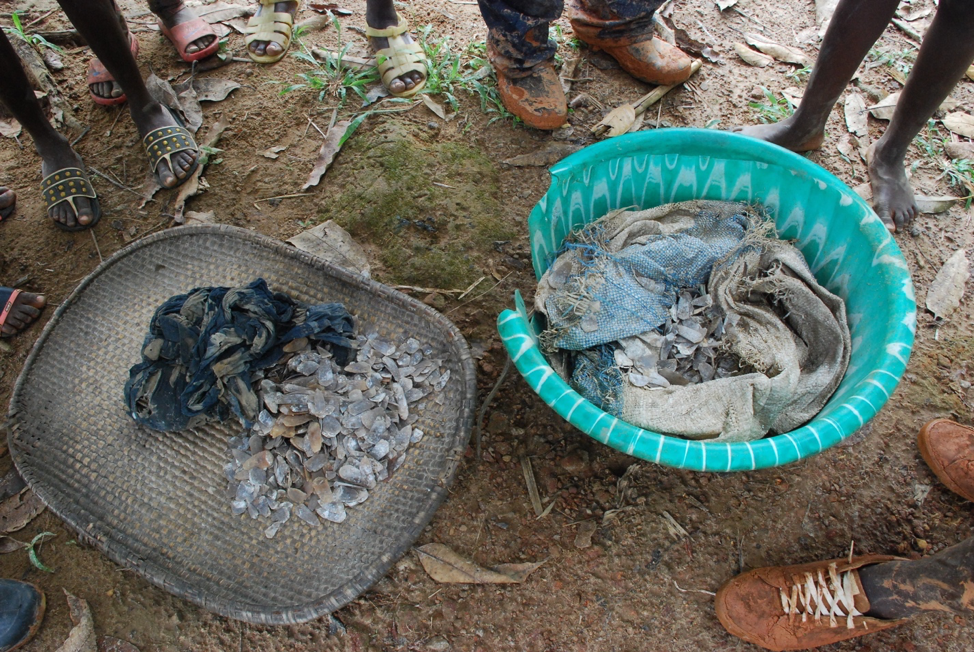
The coronavirus pandemic slowed the pace of pangolin-scales trafficking in Liberia but not the hunting, our investigation also found. We saw many hunters with stockpiles of scales still awaiting buyers. The disease, which broke out in Wuhan, China in December 2019, and has killed 6.15 million people across the globe from 491 million cases, saw countries impose travel restrictions and quarantine measures. Based on seizure data, pangolin sourcing shifted from Asia to Africa starting in 2013, with China the chief destination, according to the UNODC report. In fact, from 2007 to 2018, over 50 percent of all live pangolins, dead ones and scales seized worldwide were destined for China, it said. Furthermore, scientists traced the root of the virus in Malaysian pangolins, imposing fear among traffickers already finding it difficult to move across borders, experts say.
A motorcycle taxi unionist with knowledge of wildlife trade in Liberia’s western region, who asked not to be named for fear of retribution, said, “The pangolin scales business [has] ceased,” adding his brokers and smugglers who were active in the Mano River and Bo Waterside border areas were doing other businesses.
Nelson in Bopolu said he has not seen Jiaway for over a year and that he was no longer in contact with the traffickers at the Red Light market. Jiaway’s phone rang for the first time in three years when I called him in March but he did not pick up the call and did not reply to my text messages for comments on COVID-19.
Dehmai said bugs had eaten some of the scales she had been keeping since her last transaction in 2019. She was trying to contact a bushmeat seller at the Waterside Market in Monrovia. The bushmeat seller—who only gave her surname, Betty, fearing arrest—corroborated the accounts we heard. “I used to sell it for people but nobody’s buying it again,” Betty said.
Marie Flomo, a woman in Gbongay, a town in Salayea District, Lofa County showed us a pile of pangolin scales she had been keeping for months. A broker named only Solo from Zorzor had given her L$2,000 to collect the scales for a L$500 commission.
Abu Keita, a broker in Compound Number Three, Grand Bassa County displayed four kilograms of pangolin scales he had kept in his shop for two years. “People used to come from Monrovia and Ganta to buy from me but the virus stopped them,” Keita said, adding the four-kilogram scales would have fetched him US$40 if not for the virus. “People say [the traffickers] do not travel [anymore].” He said he was piling-up scales, hoping traffickers from Monrovia and Ganta would come soon.
But there are a few active members of the syndicate weathering the storm of the pandemic. One of them is Alex Barbu, the owner of His Grace Pharmacy in the Compound Three market, not far from Keita’s shop. A middleman, he uses his drugstore to purchase for a Nigerian trafficker he did not name but said lives in Duala. Nigerians are the most notorious for trafficking pangolins and their body parts. Dutch publication Elsevier reported that 190,407 kilograms of pangolin parts seized between 2010 and last year came from Nigeria.
Due to the pandemic, Barbu said his purchases were restricted to black scales, a description that matches the Temminck’s pangolin and the black-bellied pangolin, two species found only in Africa, which the IUCN has declared vulnerable. He added he had asked sellers to continue to pile up the brown and yellowish scales until the business “reopens.” Those descriptions also fit the giant-ground pangolin and the white-bellied pangolin, the two other African species also declared vulnerable.
He told The DayLight the Nigerian trafficker had “pre-financed me before the pandemic and I am operating with another guy in Ganta.” Once he has 20 kilograms of scales, the unnamed trafficker comes and picks up the package, Barbu said.
Midway in our interview, a motorcycle taxi driver we interviewed in Gbi/Doru District, Nimba County walked in. The motorcycle taxi driver was selling scales he had bought L$200 from Timothy Cooper, a hunter in a village called Teah Town. Barbu paid the motorcycle taxi driver L$500 for his scales, telling The DayLight: “Before the pandemic, I used to buy such quantity LD1,200 or LD1,400.”
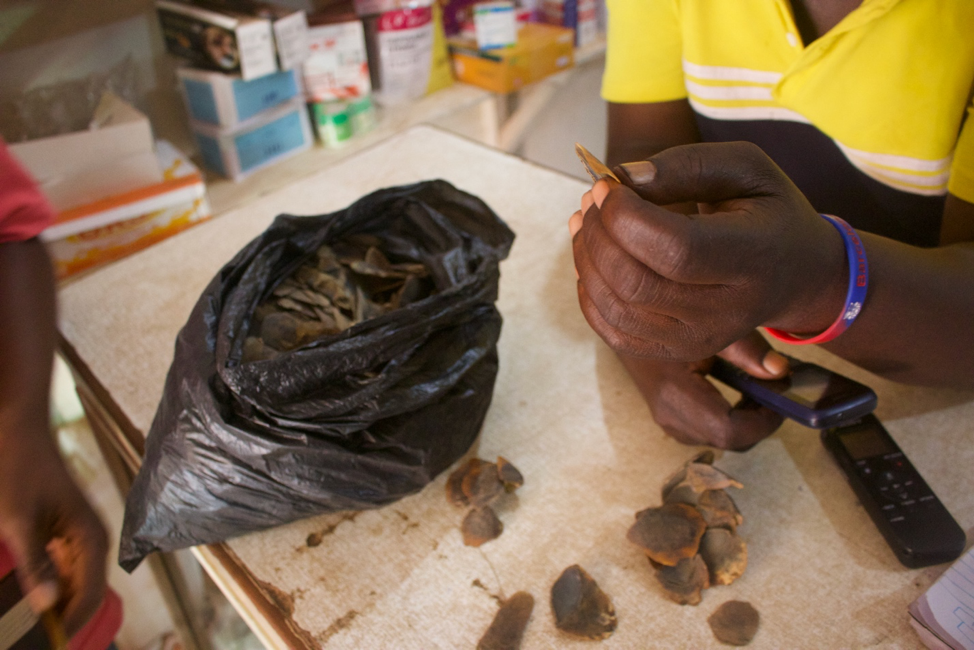
This story is part of a series on environmental crime in Africa, supported by the Global Initiative Against Transnational Organized Crime, the Henry Nxumalo Foundation and Oxpeckers Investigative Environmental Journalism.

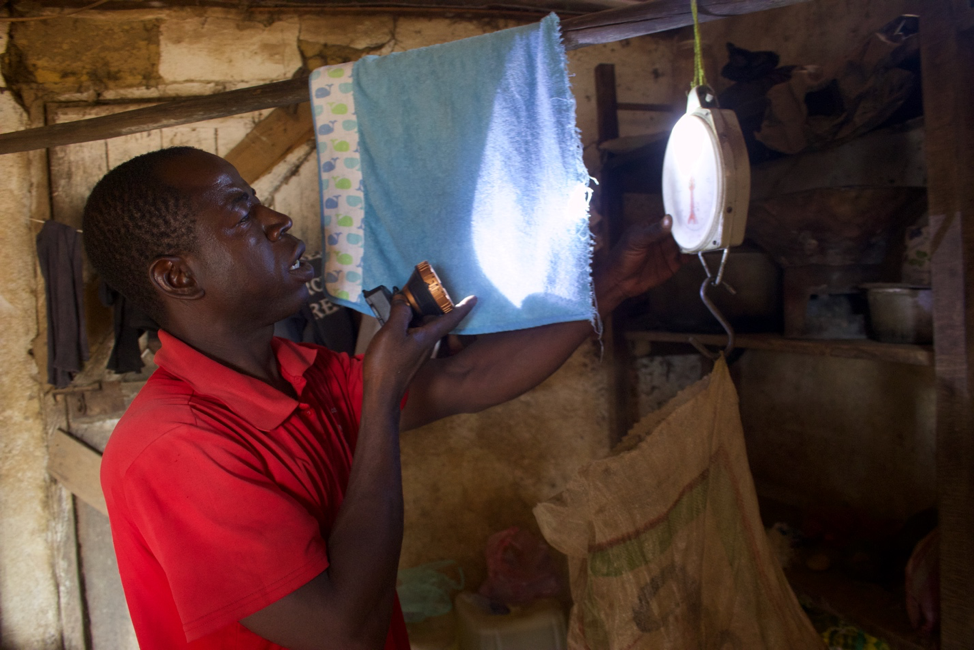

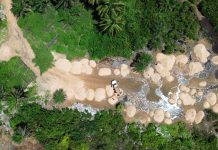

Facebook Comments